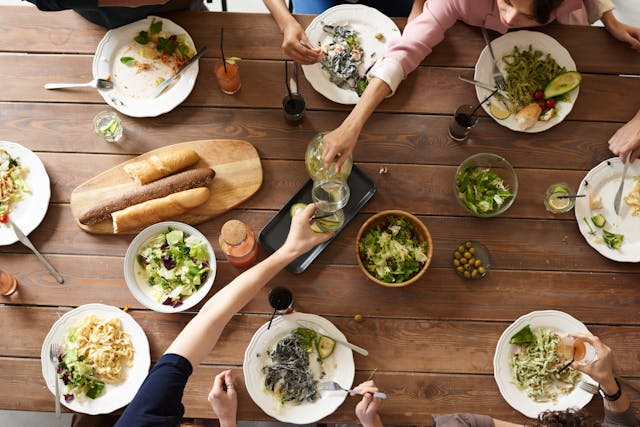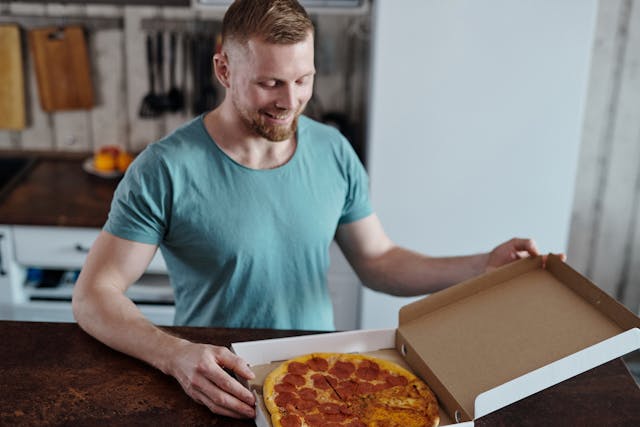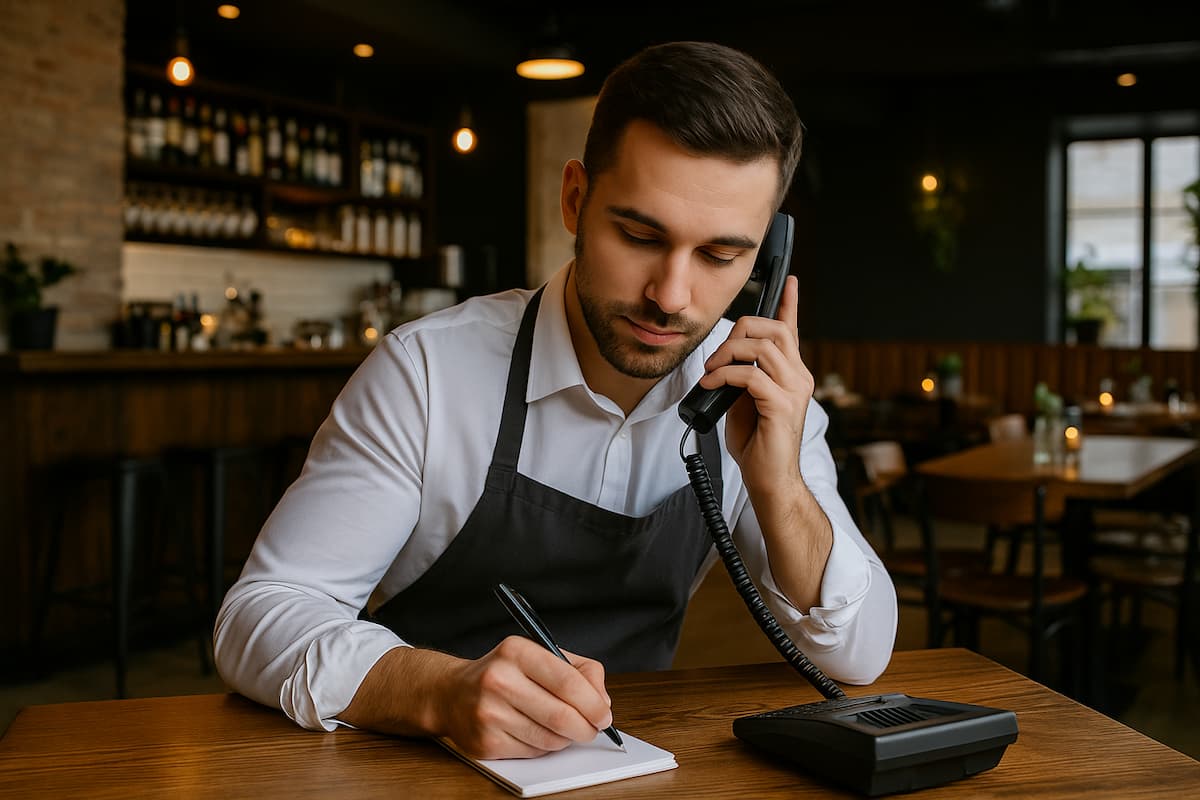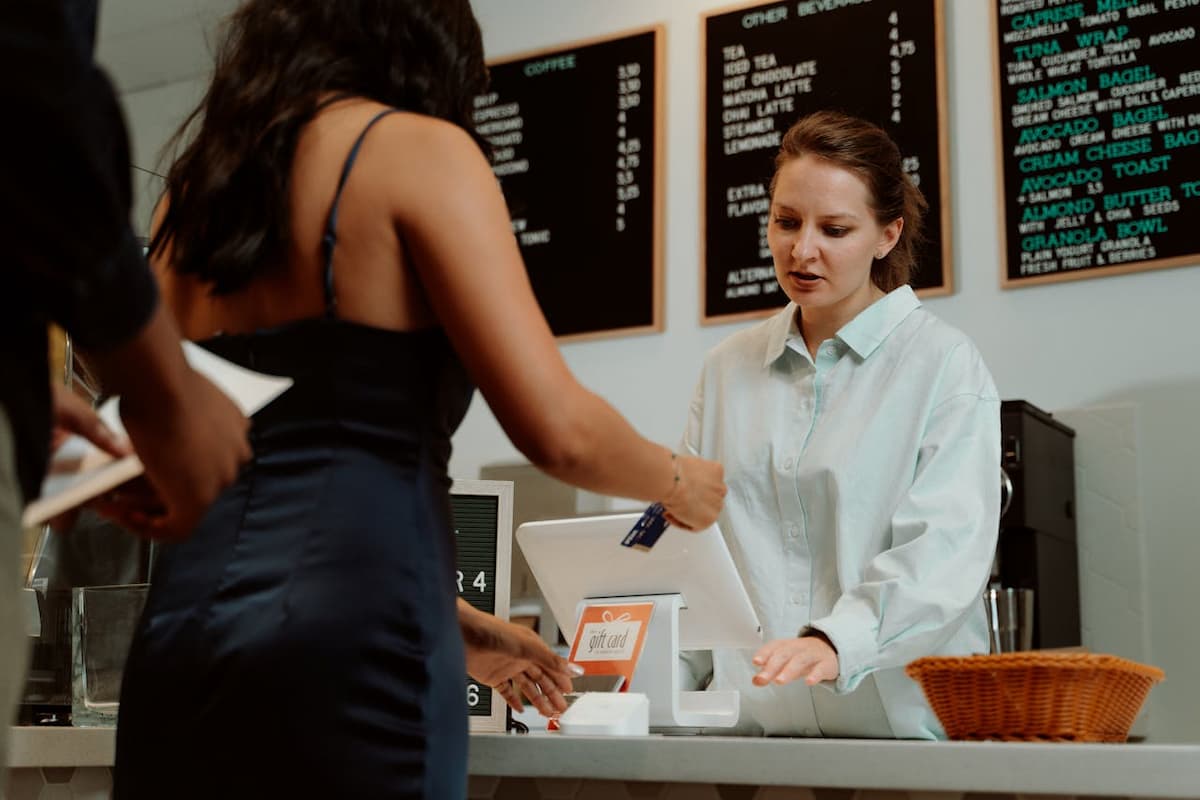Every missed call during peak hours is not only a lost customer, but it's a real loss of revenue. Imagine a Saturday afternoon in a popular restaurant: a line of guests waiting for tables, phones ringing one after another, and the kitchen working at full capacity. One missed call can mean the loss of a reservation, a takeout order, or a large catering order. Repeat this scenario several times a day, and you'll quickly see how losses mount and customer satisfaction drops. Missed calls often result in frustrated customers who may turn to competitors for faster service.
When a customer can't get through to you, it's not just a lost order, but also a missed opportunity to build a relationship. That's why in this article, I'll show you proven ways to help restaurants reduce missed calls and better manage growing call volume. You'll learn how to use automated phone systems, AI phone agents, and POS system integration to improve customer experience, increase sales, and relieve your team during busy hours.
Table of Contents:
1. Why Missed Calls Are Costing Restaurants More Than They Think?
2. Smart Restaurant Phone Systems and Automation
3. Workforce Management and Intelligent Call Routing
4. The Future of Call Management in Restaurant Services
Why Missed Calls Are Costing Restaurants More Than They Think?
In the restaurant industry, every call can mean a new customer, a takeout order, or a reservation. Market data shows that the scale of the problem is significant: in an analysis by Slang AI (cited by the Houston Chronicle), restaurants missed an average of 34% of calls, and 71% of calls were revenue-related; what's more, 20% of reservations are made outside of business hours - without an automationed phone system to efficiently manage inbound calls and handle customer inquiries, these opportunities are lost.
This has a real impact on customer experience and loyalty. According to Hospitality Technology, 69% of Americans will not visit a restaurant if no one answers the phone.
The financial impact of these losses is also well documented. HungerRush estimates that the average QSR restaurant can lose over $27,000 per year due to missed phone orders (based on call volume, average basket value, and the percentage of orders lost per call).

In turn, an analysis of 500,000 calls described by Hostie AI showed a baseline level of ~36% missed calls before the implementation of automatic telephone service and a drop to ~3% after implementation - which clearly illustrates how much room for improvement there is during peak loads when a restaurant's phone system is optimized for automation.
Before choosing a technology, calculate the scale of your problem: analyze reports from the switchboard (percentage of missed calls, average waiting time, busy hours) and POS data (number of phone orders vs. online orders) to estimate your actual revenue at risk.
It is important to select a restaurant's phone system that can handle high call volumes, manage inbound calls, integrate with other tools, and efficiently handle customer inquiries. This will allow you to set the right priorities for queuing, callbacks, and call routing.
Smart Restaurant Phone Systems and Automation
Effective reduction of missed calls in restaurants begins with the implementation of modern restaurant phone systems and automation of service processes. The most commonly used solutions are:
Phone Calls queuing and callback - instead of a busy signal, the customer hears a message about the waiting time or can leave their phone number, and the system automatically calls back when the line is free.
Interactive Voice Response (IVR) - an intelligent voice menu that redirects customers to the appropriate department (e.g., reservations, catering inquiries, takeout orders), reducing service time.
Voicemail transcription and SMS notifications - these allow staff to quickly call back customers and not miss important orders, even if the call comes in after hours. Efficient management of voicemail messages and voice messages ensures that no important communication is missed, as messages can be transcribed and forwarded for quick responses.
AI phone systems and virtual receptionists - Voice AI-based tools, including AI phone agents, use natural language processing to provide human-like phone answering, manage multiple calls simultaneously, and handle complex customer requests. These systems can handle multiple calls at once, reducing wait times and missed opportunities, and can assist with managing reservations or accommodating dietary restrictions through automated prompts. Smart automation features streamline order taking, reservation management, and customer support.
Virtual phone system and VoIP system - A virtual phone system or VoIP system streamlines restaurant communication, supports mobility, and enables smart automation by integrating with digital ordering platforms and other restaurant management tools. These systems are scalable, reliable, and can handle multiple calls, making them ideal for busy restaurants.
With these technologies, you can handle up to 90–95% of calls during peak hours without increasing the number of front-of-house staff. This not only improves the customer experience, but also allows you to increase restaurant revenue without additional operating costs.
When choosing a system, pay attention to seamless integration with POS systems and online ordering platforms - a consistent environment minimizes the risk of errors and allows you to maintain uniform order data. Selecting the best restaurant phone system for your needs should include features like managing reservations, handling dietary restrictions, and supporting advanced call management.

Workforce Management and Intelligent Call Routing
Receiving more calls is just the beginning - it is equally important that they reach the right person at the right time. That is why more and more restaurants are integrating their restaurant phone systems with staff management tools and CRM systems.
The most important features that help handle a large number of customer inquiries:
Dynamic call routing - the system recognizes which lines are free and redirects calls to where employees are available.
Integration with staff schedules - calls are routed to people scheduled for a shift, and in case of excessive call volume - to a manager or another location.
Prioritization of urgent calls - VIP reservations, catering inquiries, or complaints can be automatically marked as priority to reduce response time.
Real-time call analytics - managers can monitor call volume and peak hours in the admin panel, allowing for better staffing planning in the future.
Thanks to such solutions, it is possible not only to reduce the number of missed calls, but also to shorten service time and improve customer satisfaction. This is particularly important in the food service industry, where customer experience often determines whether a customer will return.
Intelligent call routing connected to POS systems and CRM is not only about handling calls, but also about creating a consistent customer history - you know when they last ordered, what their preferences are, and you can even offer them a personalized promotion.
The Future of Call Management in Restaurant Services
Reducing missed calls isn’t just about installing a new phone system - it’s about building a smarter, more connected operation. Restaurants that implement intelligent telephone solutions with AI phone systems, call analytics, and POS system integration significantly improve the customer experience and gain a competitive advantage.
The combination of phone ordering systems, RAG-powered assistants, and restaurant operations software creates an environment where:
-
Every call goes to the right person, even during peak hours.
-
Phone orders, online ordering platforms, and POS are handled in one place.
-
Data from customer interactions is turned into analytics that help you make better business decisions.
As Railwaymen, we work with restaurants and foodservice chains in the GCC and around the world to create custom solutions tailored to their needs: from integration with e-wallets and payment gateways to AI-powered analytics and intelligent call management systems.
Ready to Turn Missed Calls Into Revenue?
See how we can help your restaurant increase the number of answered calls, improve customer satisfaction, and automate processes that currently take up your team's time.

%20(1)%20(2)%20(1).jpg)


